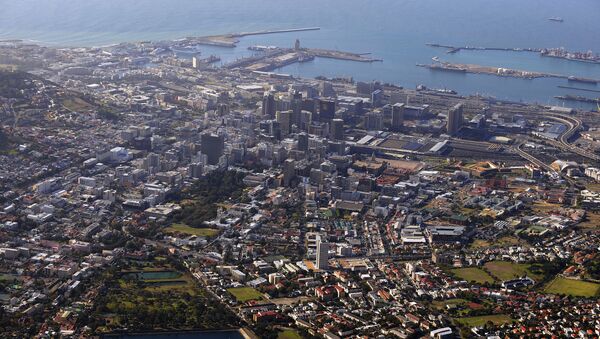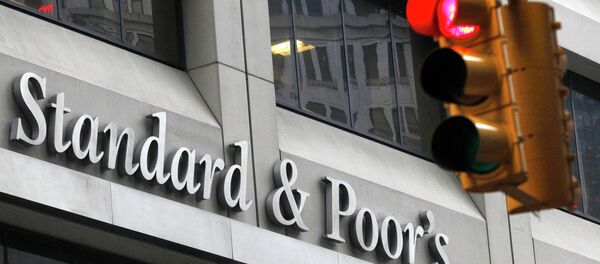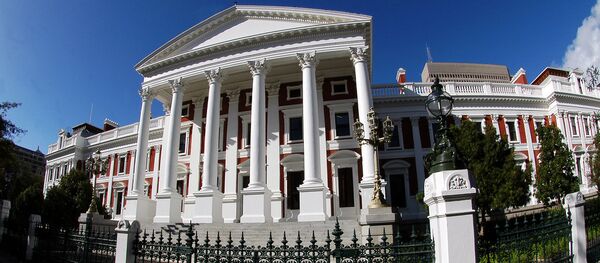Kristian Rouz — After international rating agencies Standard & Poor's and Fitch confirmed South Africa's investment rating earlier this month amidst mounting downward pressures in the economy, investors' sentiment demonstrated sighs of relief somewhat. Yet, albeit this major political win for Finance Minister Pravin Gordhan, who is a stiff opponent of the acting President Jacob Zuma, allows for a greater scale of policy maneuvers aimed at overcoming the economic struggle, it is self-evident that investment-grade ratings will not last long for South Africa unless sound and decisive structural reforms are undertaken, addressing the nation's excessive dependence on commodity exports.
Meanwhile, negative macroeconomic trends persist, with low metals prices weighing on the South African current account, and household consumption shrinking amidst insufficient growth and rife joblessness.
"We expect that this will force the South African Reserve Bank to hike its key interest rate, even in the face of very weak economic growth," Capital Economics said in a statement following the SARB announcement.
Meanwhile, gross spending dropped by 1.3% year-on-year in 1Q16, mainly due to the rand's plunge, and lack of active job creation outside the province of Western Cape, hampering nationwide levels of disposable income. During the previous quarter, before December's financial panic entailing the partial cabinet reshuffle and the rand's slide against the dollar, consumer spending rose 1.9% annualized. Household spending also dropped 1.3% year-on-year in 1Q16 after having advanced 2.1% in the previous quarter.
"One of the explanations for this rather sharp decline is that previously people were still buying, preempting that prices would go up quite a bit," Johan van den Heever of SARB said. "That's kind of the double whammy of drought conditions, forcing us to import rather than export maize, at the same time as the weakish exchange rate is pushing up the prices of food."
Inflation, however, slowed to 6.2% in April from its multiyear highest of 7% two months prior, as the rand stabilized at around 15 ZAR per dollar from the lows of 16.89 seen earlier this year.
However, FM Gordhan's plan aimed at stricter fiscal discipline resulted in governmental spending slowing to 1.0% in 1Q16 compared to that of 2.6% in 4Q15.
On the brighter side, South Africa's high unemployment and, subsequently, cheaper labor force, as well as the complexity of financial sector, with Johannesburg Stock Exchange being the largest trading platform on the continent, allow for a two-pronged economic reform, aimed at boosting manufacturing and financial services. The still favorable international investment ratings allow for that yet, whilst the opposition party Democratic Alliance (DA), governing the province of Western Cape, has valuable experience in that regard.
Given Gordhan is adamantly pursuing his vision of economic policies in his standoff with Zuma. South Africa's FM might be leaning DA increasingly in the coming months as popular support for the likely painful reforms will be crucial. The African National Congress (ANC), on its part, is rapidly losing credibility as evidenced by a spree of street violence most prominently seen in the ANC-run province of KwaZulu-Natal, triggered by the ruling party's inability to provide sustainable jobs creation and stability of prices, as well as fueled by the recent Expropriation Bill controversy, alienating South Africans involved with agriculture from Zuma and his party.
Should Gordhan fail in his reform effort, a non-investment downgrade with all the grave consequences entailing will not be long to follow.




